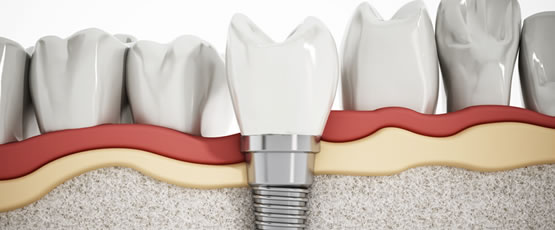
The chances are that like most people, if you hear the word dentist you immediately think pain and discomfort. You may have had a bad experience in the past with toothache or had a tooth extracted. You may have simply heard one too many horror stories about everybody else’s. Although a dental emergency may be painful and require a visit to the dentist, the truth is that with the modern techniques and advanced training of dentists today, it is rarely the procedure itself that is painful.
Regardless, we tend to avoid going to the dentist because of our nature as humans. Even when it is in our best interests. This is especially true of dental implants. If you are suffering from missing teeth and have been considering dental implants, but have found yourself worrying about whether or not the treatment hurts, do not fear – you are not alone. Let’s take a closer look at the process and help to put your mind at rest.
Why get dental implants?
Dental implants are a permanent solution to missing teeth. Unlike other options, they do not have an impact on your remaining, healthy teeth. They provide you with the most stable and natural looking replacement. They also help to strengthen the jaw by replacing not just the missing tooth but also the root.
Apart from the obvious visual implications of missing teeth, which can severely undermine our confidence and sense of self-esteem, there are also hidden dangers of missing teeth. Over time, these can cause more problems. This can include weakening of the bone which can lead to damage or failure of other teeth and a receding jaw – which often has the effect of causing us to look older than we are. This happens because when we chew, our teeth help stimulate the bone below and keep it in a healthy condition. If a tooth is missing, this does not happen and the jawbone gradually begins to deteriorate.
As well as helping you to look and feel great again, dental implants are a great way to protect yourself from the chances of such problems arising.
How do dental implants work?
Dental implants are actually comprised of three elements, known as the implant, the abutment and the crown.
It is the implant that plays the most important role, as this helps to restore strength to the jaw as well as forming a strong base upon which the new tooth – the crown – can be mounted.
A dental implant is made of high-quality titanium, which is biocompatible. This means that it has the special property of being able to bond and fuse with the natural bone around it. This means that it becomes an integral part of your jaw.
Once the implant is fully bonded, the abutment can be fitted, and finally the crown – and your smile is restored.
What does the fitting process look like?
After your initial consultation and any preliminary treatment, the actual process of fitting your dental implants typically has four main stages.
The first step is to numb the gum with anaesthetic. A surface anaesthetic is used first to freeze the gum. This allows the local anaesthetic to be injected without you feeling anything. Once this anaesthetic has started to work, you will not feel anything at all.
Once this first stage is ready, the next step is to prepare the site for the implants. The dentist will need to make a small opening in the gum in order to gain access to the bone.
The dentist will then drill what is known as a pilot hole. This allows the dentist to check that the position and angle are correct. The hole will then be gradually widened to the correct width for the implant to be inserted.
Finally, the implant can be screwed into place and sealed off, and the gum around the area stitched.
It is important to remember that the entire process is a planned, precision procedure. Don’t think of it as something like a tooth extraction or other emergency treatment.
What about recovery?
As with any dental treatment, everybody’s experience is different. However, the vast majority of patients state that they feel nothing more than mild discomfort afterwards, most often during the healing stage. They are often pleasantly surprised by the lack of any pain during the procedure itself.
In order to keep you feeling comfortable, your dentist will prescribe painkillers and a special mouthwash for use after your implant procedure and go through what you need to do to ensure quick and successful recovery. Of course, we’ll never be more than a phone call away should you have any questions or concerns.
It will also be necessary to return about a week after treatment to have the stitches removed, although this will also be done painlessly.
Why wait for your perfect smile – call us today
If you are interested in dental implant surgery and would like to find out more or book your initial consultation, don’t hesitate to call the expert team at Perfect Pearls today on Wolverhampton 01902 500 823. Alternatively, see more ways to get in touch online.








